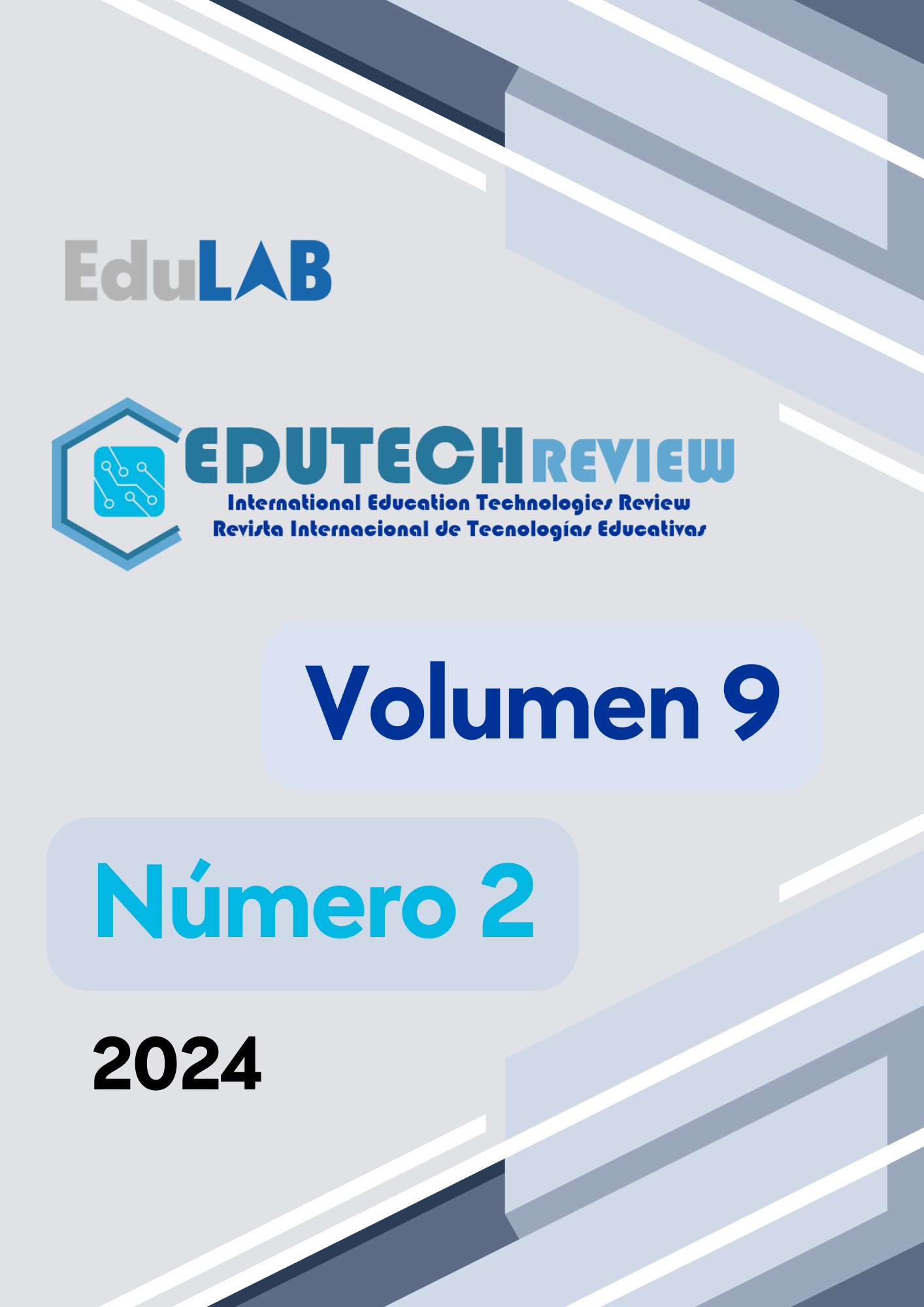University tutoring: impact of its application on professional and personal training.
DOI:
https://doi.org/10.62701/revedutech.v9.5426Keywords:
Tutoría universitaria, éxito académico, retención estudiantil, desarrollo socioemocional, políticas públicasAbstract
This study addresses university tutoring as a comprehensive strategy for success in the academic and personal training of students, focusing on the Peruvian context. Through a qualitative approach that included interviews with 20 students and 10 teachers from a study program at a Peruvian university, benefits, challenges and areas for improvement were identified to implement tutoring programs. The results show that, although tutoring contributes significantly to improving academic performance, student retention, and socio-emotional development, it faces limitations such as lack of training, insufficient resources, and an unclear structure. It is concluded that it is essential to strengthen the training of tutors, establish clear standards and guarantee adequate resources. Furthermore, the need for policies to promote equity and ensure the sustainability of these programs as a transversal axis in the university curriculum is highlighted.Global Statistics ℹ️
|
1199
Views
|
997
Downloads
|
|
2196
Total
|
|
References
Aguilera, J. (2019). La tutoría universitaria como práctica docente: fundamentos y métodos para el desarrollo de planes de acción tutorial en la universidad. Pro-Posições, 30, 1-27. http://dx.doi.org/10.1590/1980-6248-2017-0038 DOI: https://doi.org/10.1590/1980-6248-2017-0038
Barraza Macías, A. (2023). Metodología de la investigación cualitativa. Una perspectiva interpretativa. Benessere. Centro de Intervención para el Bienestar Físico y Mental A. C. http://www.upd.edu.mx/PDF/Libros/MetodologiaInvestigacion.pdf
Braun, V., & Clarke, V. (2006). Using thematic analysis in psychology. Qualitative Research in Psychology, 3(2), 77-101. https://www.tandfonline.com/doi/abs/10.1191/1478088706qp063oa DOI: https://doi.org/10.1191/1478088706qp063oa
Creswell, J. W. (2014). Research design: Qualitative, quantitative, and mixed methods approaches. SAGE Publications.
Delgado, R., González, M., & Salazar, C. (2005). Tutoría y orientación educativa en el Perú. Ministerio de Educación del Perú.
Esquivel, J. T., Venegas Mejía, V. L., Robles Ortiz, S. E., Chumpitaz, M., Benavides, F., & Venegas Mejía, C. P. (2023). La tutoría universitaria: Perspectiva y apreciaciones desde la formación profesional. Editorial Grupo Compás. http://142.93.18.15:8080/jspui/handle/123456789/930
Esquivel-Grados, J. T., Venegas-Mejía, C. P., Esquivel-Grados, M. N., & Gonzales-Benites, M. T. (2023). Las muestras en investigaciones educativas. Un estudio de pertinencia y suficiencia en tesis de posgrado. HUMAN REVIEW. International Humanities Review/Revista Internacional de Humanidades, 21(2), 355-369. https://eaapublishing.org/journals/index.php/humanrev/article/view/1743/1860 DOI: https://doi.org/10.37467/revhuman.v21.5071
Guffante Naranjo, F. R., Guffante, T. M., Barragán Erazo, V., & Meneses Freire, M. A. (2022). Impacto de las tutorías en la formación integral de estudiantes universitarios. Podium. Revista de Ciencia y Tecnología en la Cultura Física, 17(2), 622-640. http://scielo.sld.cu/scielo.php?pid=S1996-24522022000200622&script=sci_arttext
Martínez, P., Pérez, J., & Martínez, M. (2018). Aplicación de los modelos de gestión de calidad a la tutoría universitaria. Revista Complutense de Educación, 29(3), 633-649. http://dx.doi.org/10.5209/RCED.53541 DOI: https://doi.org/10.5209/RCED.53541
Martínez, P.; Pérez, F. J., & González, N. (2019). ¿Qué necesita el alumnado de la tutoría universitaria? Validación de un instrumento de medida a través de un análisis multivariante. Educación XX1, 22(1), 189-213, doi: 10.5944/educXX1.21302 DOI: https://doi.org/10.5944/educxx1.21302
Martínez, P., Pérez, J., González, N., González, C., & Martínez, M. (2021). La Tutoría universitaria vista por sus alumnos: Propuestas de mejora. Revista de Educación Superior, 49(195), 55-72. https://doi.org/10.36857/resu.2020.195.1251
Moliner, L. & Alegre, F. (2020). Effects of peer tutoring on middle school student’s mathematics self-concepts. PloS ONE, 15(4), 1-18. https://doi.org/10.1371/journal.pone.0231410 DOI: https://doi.org/10.1371/journal.pone.0231410
Pandey, S. R., & Sharma, M. R. (2022). Mentoring and Professional Development: A Gateway to Professionalism. Journal of Social Work and Science Education, 3(2), 168–178. https://doi.org/10.52690/jswse.v3i2.294 DOI: https://doi.org/10.52690/jswse.v3i2.294
Pantoja Vallejo, A., Colmenero Ruiz, M. J., & Molero, D. (2022). Aspectos condicionantes de la tutoría universitaria. Un estudio comparado. Revista de Investigación Educativa, 40(1), 33–49. https://doi.org/10.6018/rie.373741 DOI: https://doi.org/10.6018/rie.373741
Patton, M. Q. (2002). Qualitative research & evaluation methods. SAGE Publications.
Peñaloza, W. (2015). La Cantuta: Una experiencia en educación (2ª ed.). Universidad Nacional Enrique Guzmán y Valle.
Pérez-Cusó, F. J., González-Morga, N., González-Lorente, C., & Martínez-Clares, P. (2024). Valoración de la tutoría por parte del alumnado universitario. Revista Colombiana de Educación, (91), 99–120. https://doi.org/10.17227/rce.num91-16615 DOI: https://doi.org/10.17227/rce.num91-16615
Pérez-Serrano, M. J., Rodríguez-Pallares, M., & González-Alonso, M. Y. (2020). Utilidad de las tutorías académicas en la universidad: Resultados agregados de un estudio multidimensional en diferentes ciencias. Revista de Ciencias de la Comunicación e Información, 25(1), 57–74. https://doi.org/10.35742/rcci.2020.25(1).57-74 DOI: https://doi.org/10.35742/rcci.2020.25(1).57-74
Ponce Ceballos, S., García-Cabrero, B., Islas Cervantes, D., Martínez Soto, Y., & Serna Rodríguez, A. (2018). De la tutoría a la mentoría. Reflexiones en torno a la diversidad del trabajo docente. Páginas de Educación, 11(2), 215-235. https://doi.org/10.22235/pe.v11i2.1635 DOI: https://doi.org/10.22235/pe.v11i2.1635
Prysak, D., Wojtas-Rduch, A, & Mrózek, S. (2022). Tutoring in University Education as an Extended Perspective (Reality) and an Element of Inclusive Education. International Journal of Special Education, 37(2), 169-179. https://doi.org/10.52291/ijse.2022.37.50 DOI: https://doi.org/10.52291/ijse.2022.37.50
Santa Cruz Terán, F. F., Obando Peralta, E. C., Reyes Pastor, G. E, & Rodríguez-Balcázar, S. C. (2022). Investigación cualitativa: una mirada a su validación desde la perspectiva de los métodos de triangulación. Revista de filosofía, 39(101), 59-72. https://doi.org/10.5281/zenodo.6663103
Thibaut, P., & Muñoz, N. (2024). Tutoría entre pares en la carrera de Pedagogía en formato presencial y online. Revista Electrónica de Investigación Educativa, 26, e14, 1-14. https://doi.org/10.24320/redie.2024.26.e14.5242 DOI: https://doi.org/10.24320/redie.2024.26.e14.5242
UNESCO. (1996). Learning: The treasure within. Report to UNESCO of the International Commission on Education for the Twenty-first Century.
UNESCO. (1998). Declaración Mundial sobre la Educación Superior en el Siglo XXI: Visión y acción. Conferencia Mundial sobre la Educación Superior. http://www.unesco.org/ducation/educprog/wche/declaration_spa.htm
Vygotsky, L. S. (1981). Pensamiento y Lenguaje. La Pléyade. DOI: https://doi.org/10.1080/02103702.1981.10821886
Downloads
Published
How to Cite
Issue
Section
License
Copyright (c) 2024 EDUTECH REVIEW. International Education Technologies Review / Revista Internacional de Tecnologías Educativas

This work is licensed under a Creative Commons Attribution-NonCommercial-NoDerivatives 4.0 International License.
Those authors who publish in this journal accept the following terms:
- Authors will keep the moral right of the work and they will transfer the commercial rights.
- After 1 year from publication, the work shall thereafter be open access online on our website, but will retain copyright.
- In the event that the authors wish to assign an Creative Commons (CC) license, they may request it by writing to publishing@eagora.org







